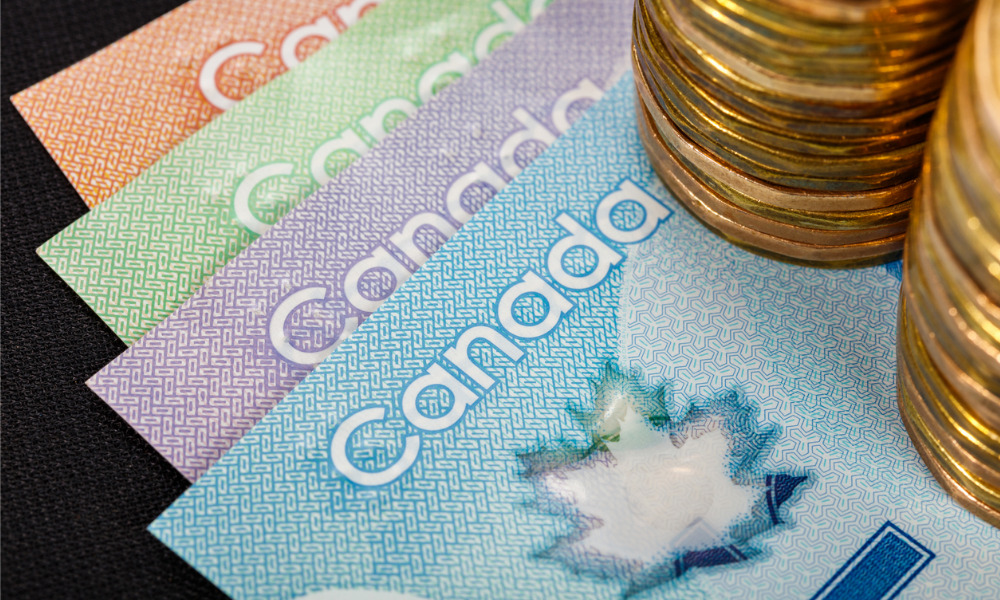An updated look at the latest hourly pay rates across the country

Many minimum wage rates across Canada are changing in 2021. Nunavut and British Columbia rank at the top with the highest minimum hourly pay in the country.
Will minimum wage go up in 2021?
Several Canadian jurisdictions – including Saskatchewan – have increases to their minimum wages planned in 2021, with many tied to their consumer price index.
New Brunswick, Prince Edward Island, and Nova Scotia increased their basic rate on April 1, with Quebec following suit one month later and B.C. on June 1. Manitoba, Ontario, and Newfoundland and Labrador have increases planned in October.
Read more: Are minimum wage hikes 'largely ineffective'?
How much does a student earn in Canada?
Ontario and Alberta are currently the only provinces that specify separate minimum wage rates for students, while students in the Northwest Territories who are employed in a work program as part of their studies are exempt from the minimum wage requirement.
In Ontario, students under 18 years old who work 28 hours per week or less earn $13.40 per hour.
Meanwhile, Alberta students under 18 must be paid at least $13 per hour for the first 28 hours worked in a week when school is in session and employers must pay the standard $15 for all hours after that. When school is not in session, Alberta students earn $13 per hour for all regular hours worked.
Read more: Minimum wage hike won't kill jobs: CCPA
Nunavut
Nunavut has the highest minimum wage rate in the country at $16 per hour, in effect since April 1, 2020. The rate does not apply to trappers and individuals employed in commercial fisheries.
British Columbia
B.C.’s minimum rate is $15.20 per hour. Live-in support workers must earn at least $113.40 per day or part day worked. Live-in camp leaders must be paid $121.65 per day. Liquor servers had a lower rate until June 1, 2021, when they were placed under the overall rate.
Alberta
Alberta employers have been required to pay their workers $15 per hour since Oct. 1, 2018. Salespersons, land agents, architects, accountants, and certain other professions must have minimum earnings of $598 per week and domestic employees living in their employer’s home must be paid at least $2,848 per month.
Ontario
Canada’s most populous province has its minimum hourly pay at $14.25 per hour, as set on Oct. 1, 2020. Liquor servers earn $12.45 and the hourly rate for home workers is $15.70. All of these rates are expected to rise by 10 cents per hour on Oct. 1, 2021, in accordance with the Ontario Consumer Price Index.
Yukon
The territory‘s minimum wage is $13.85 per hour, based on the 2020 Consumer Price Index for the capital city of Whitehorse. There is a separate fair wage schedule for workers on government or public works contracts in various classifications such as carpenters and electricians, and surveyor’s helpers and truck drivers.
Quebec
The province’s wage floor is $13.50 per hour. The rate for employees who receive tips is $10.80 per hour.
Northwest Territories
The minimum wage in the Northwest Territories has been $13.46 per hour since April 1, 2018.
Prince Edward Island
Employers in Canada’s smallest province are required to pay their workers at least $13 per hour.
Nova Scotia
Nova Scotia workers are entitled to at least $12.95 per hour. Exemptions are: certain farm employees, apprentices under apprenticeship agreements, anyone receiving training under government sponsored plans, employees of non-profit playgrounds or summer camps, real estate and vehicle salespeople, commissioned salespeople who work outside the employer’s premises, insurance agents, employees on fishing boats, logging forest operations workers, construction and property maintenance workers, people providing domestic service or personal care in a private home for 24 or less hours per week, and athletes.
Newfoundland and Labrador
The minimum rate in Newfoundland and Labrador is $12.50 per hour with an expected increase to $12.65 on Oct. 1, 2021, based on the National Consumer Price Index. Exemptions include farm employees involved in the planting, cultivating and harvesting of farm produce or raising livestock, as well as live-in housekeepers or babysitters where there is an arrangement in place to get time off with pay for hours in excess of 40 per week.
Manitoba
The minimum wage in Manitoba is $11.90 per hour with future increases tied to the Manitoba Consumer Price Index, including an increase on Oct. 1, 2021. The wage for workers in the heavy construction sector ranges from $12.75 to $25.25, depending on the classification. Domestic workers who work less than 12 hours a week and election officials are exempt. Flat-rate mechanics and salespeople on commission must earn the minimum wage in each pay period.
New Brunswick
The minimum rate in New Brunswick is $11.75 per hour, indexed to the province’s Consumer Price Index. There are different wage rates for employees in Crown construction work, while counsellors and program staff at residential summer camps must earn a minimum of $501.60 per week.
Saskatchewan
The prairie province rounds out the list with a minimum wage rate of $11.45 per hour, in place since Oct. 1, 2020. Increases to the rate are tied to the Saskatchewan Consumer Price Index. Live-in care providers and live-in domestic workers must receive the minimum wage for the first eight hours per day before deductions for room and board. Caregivers who live outside the household are exempt.




